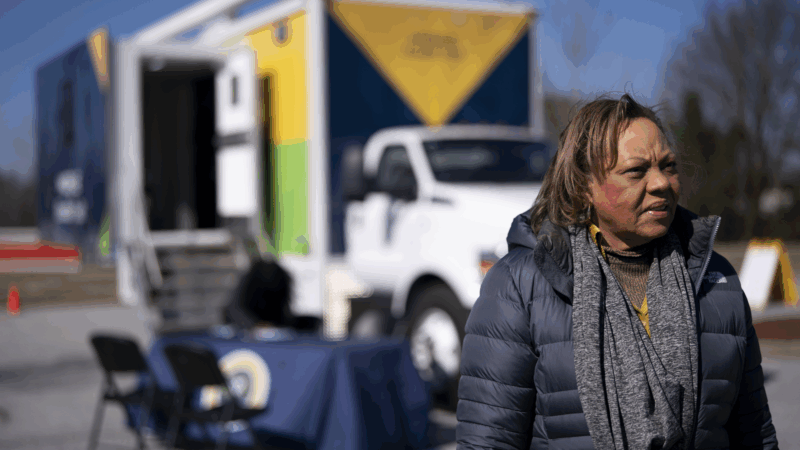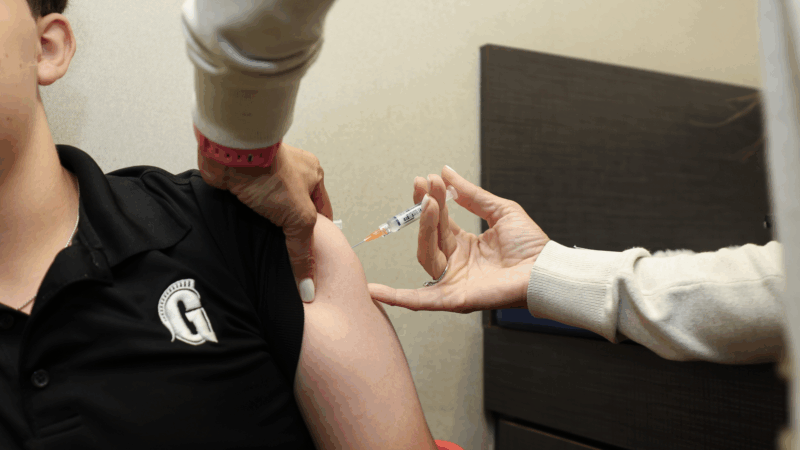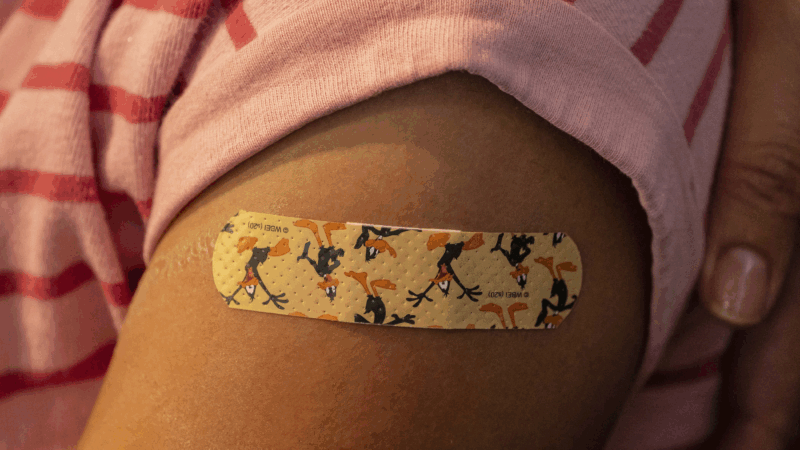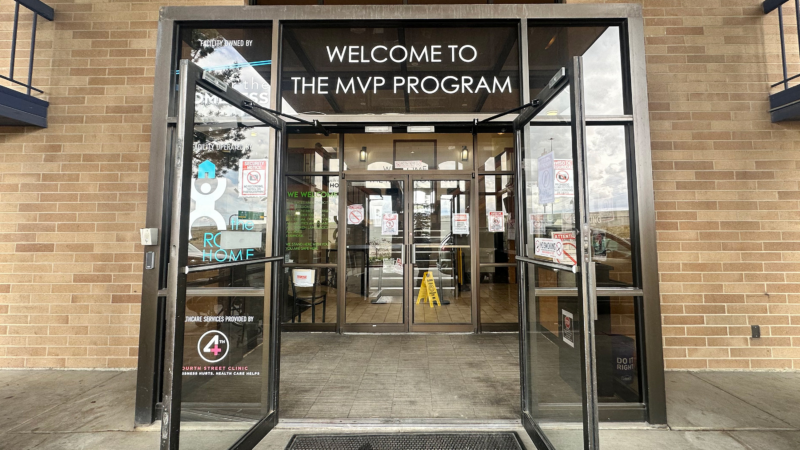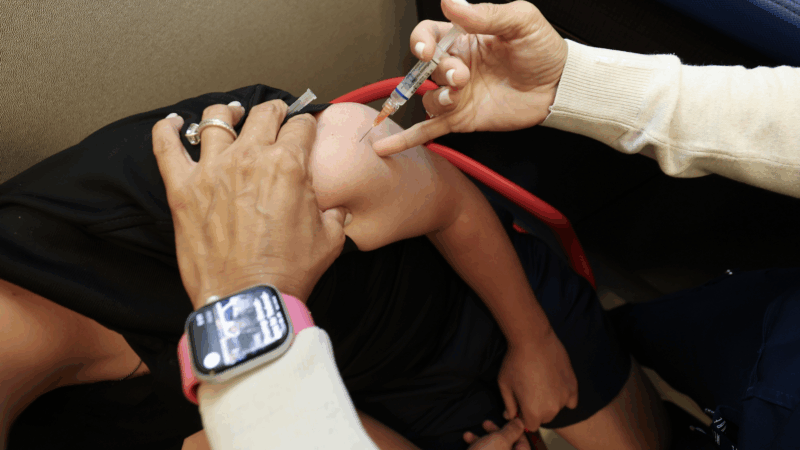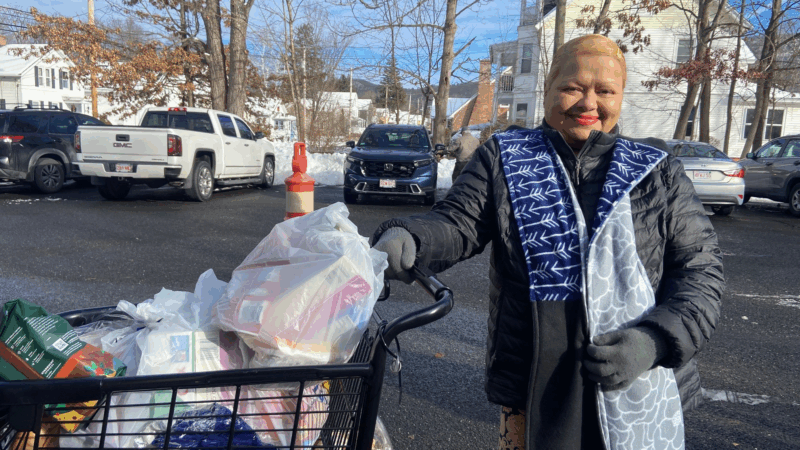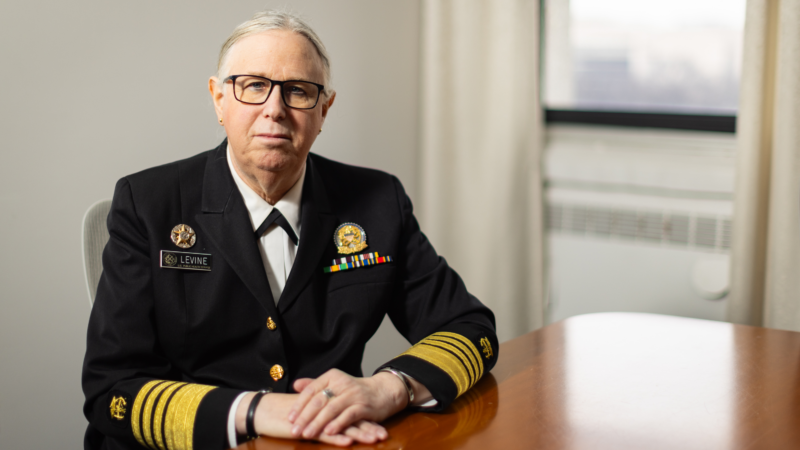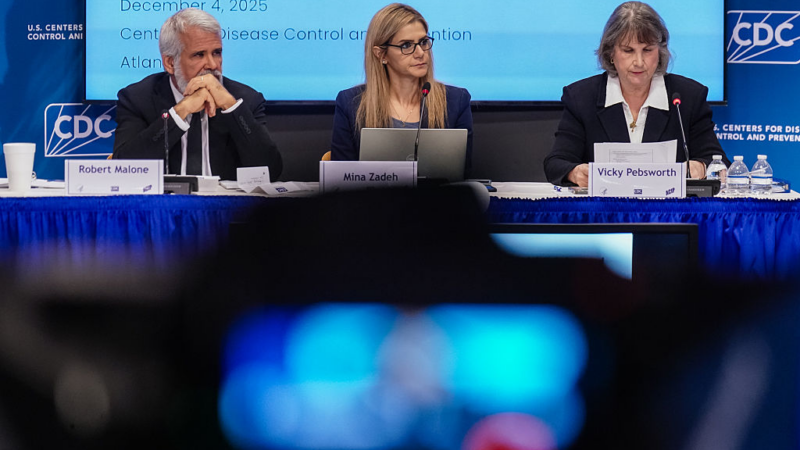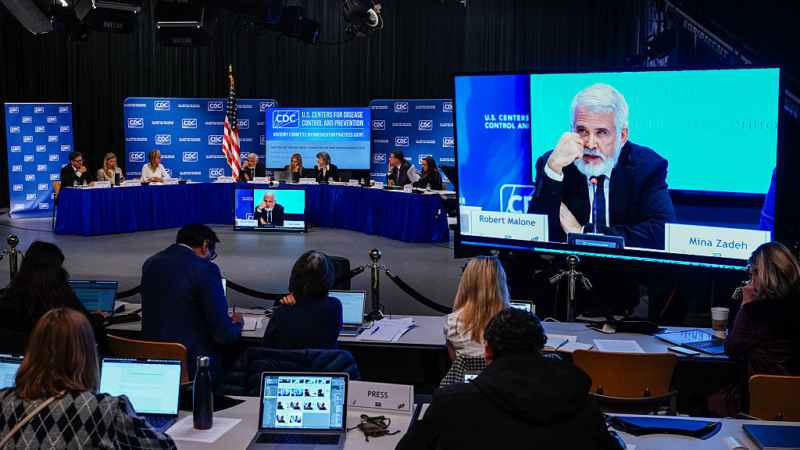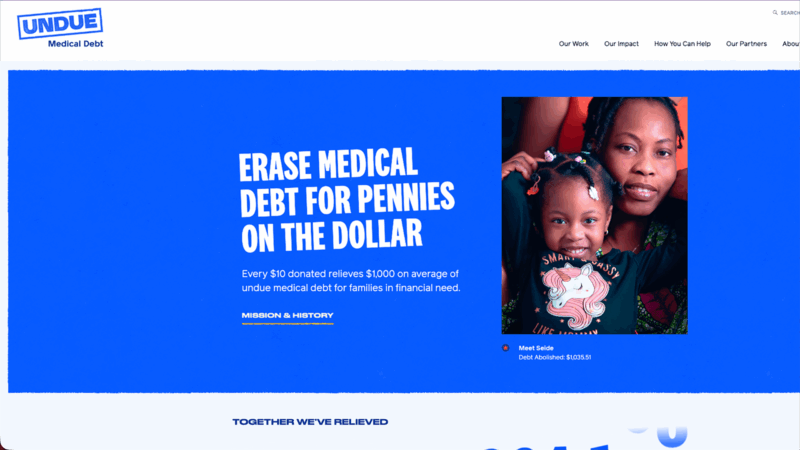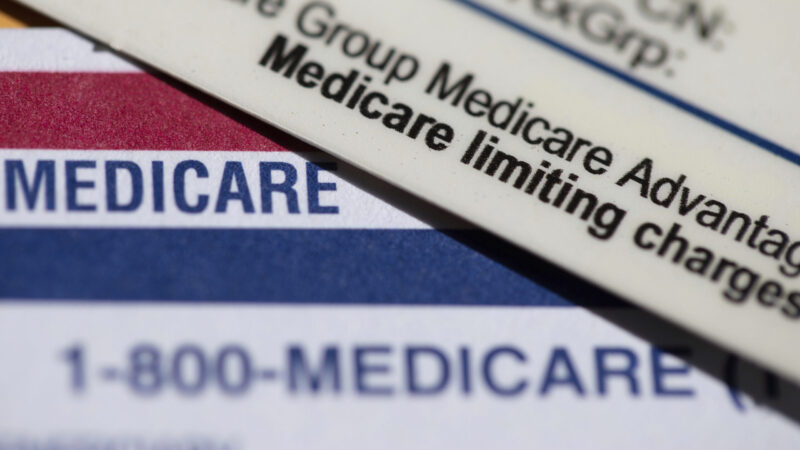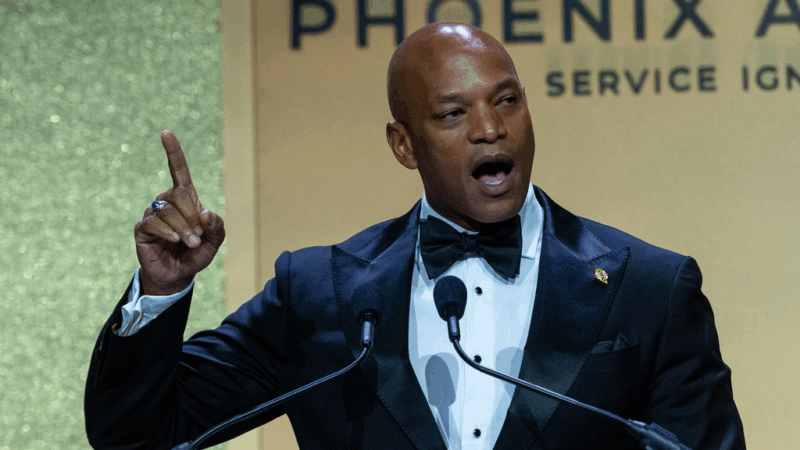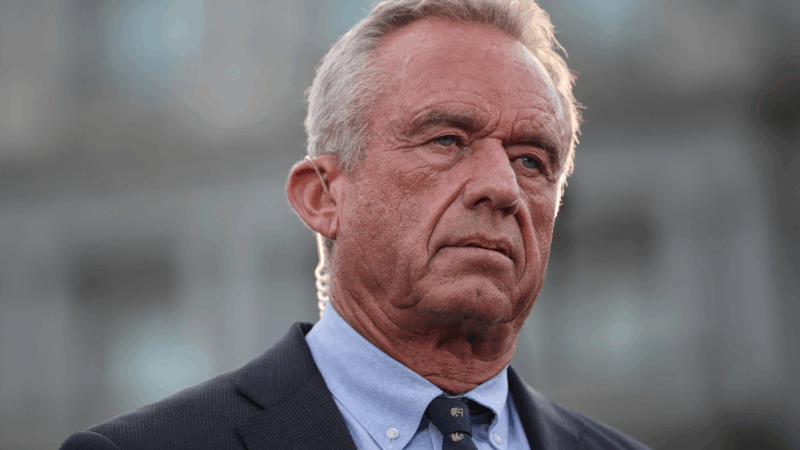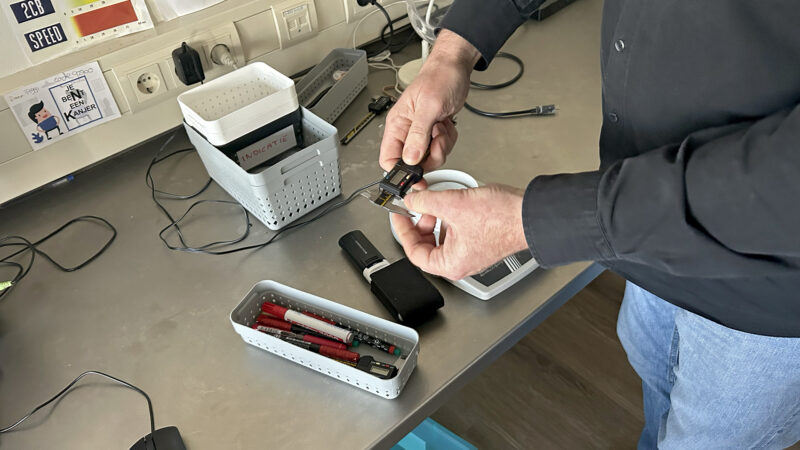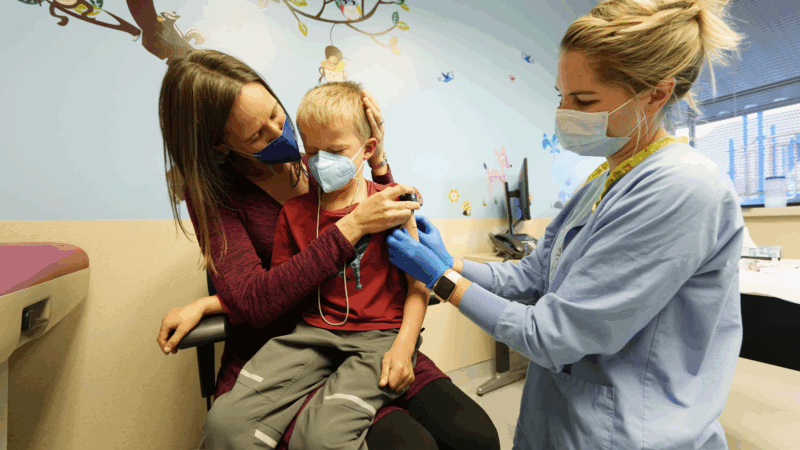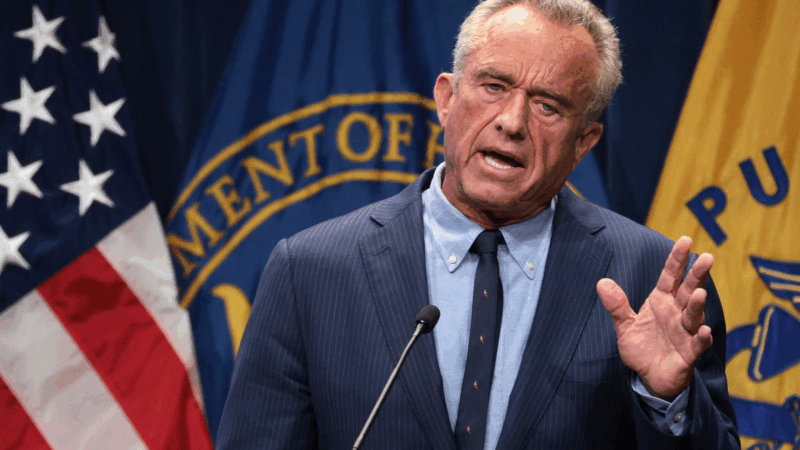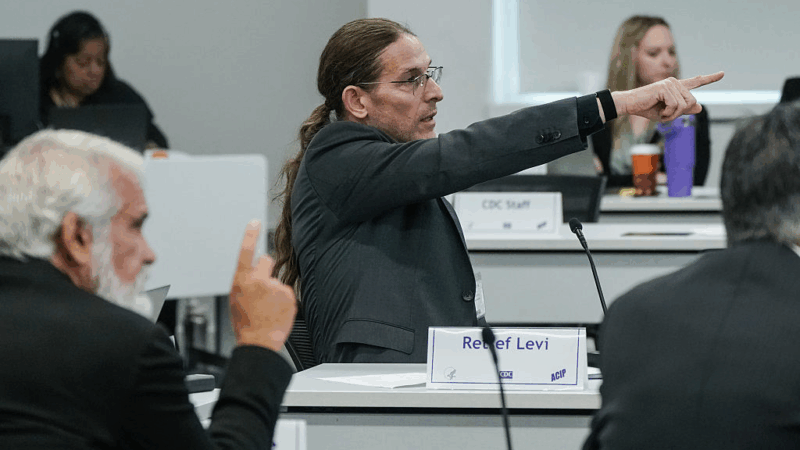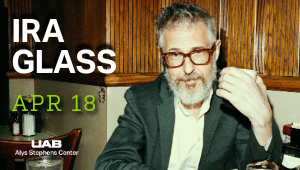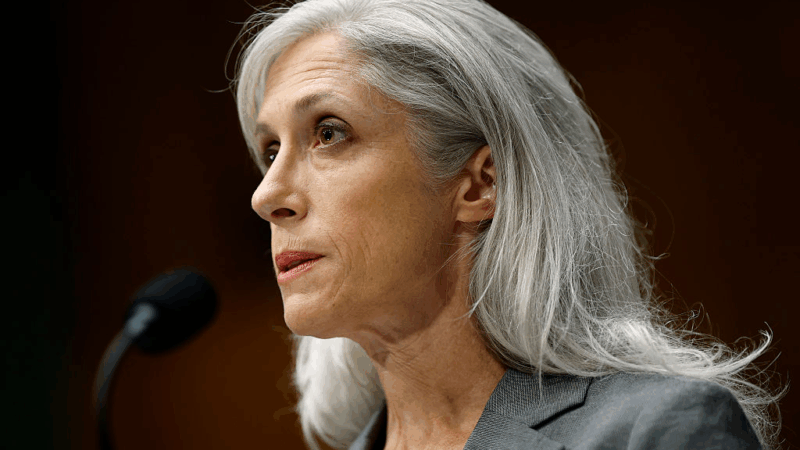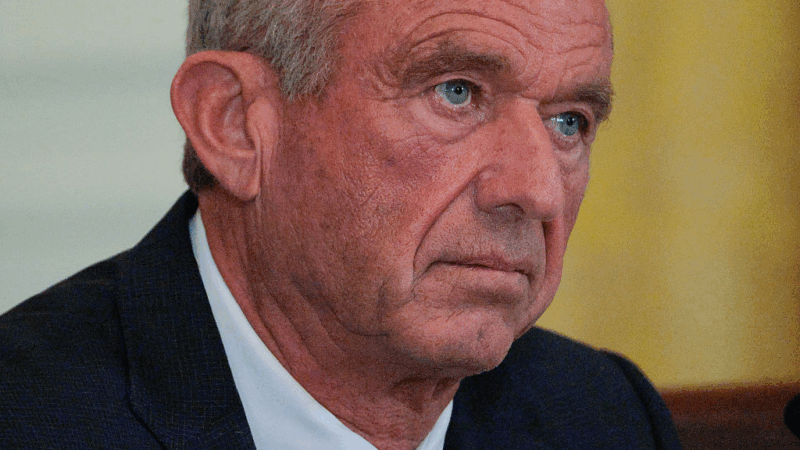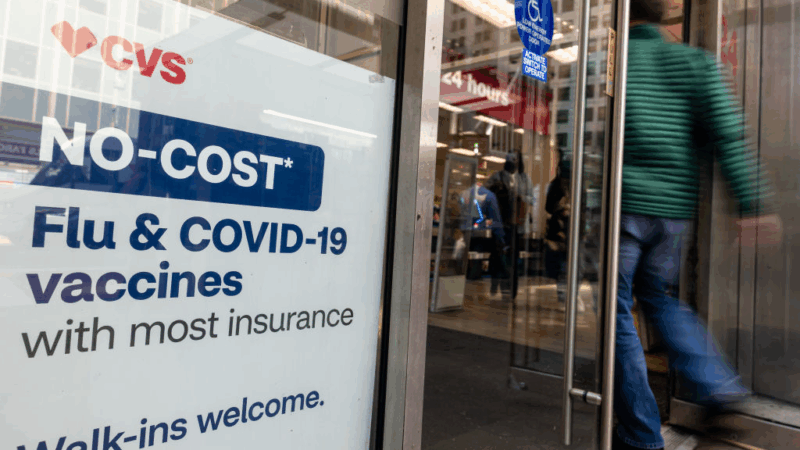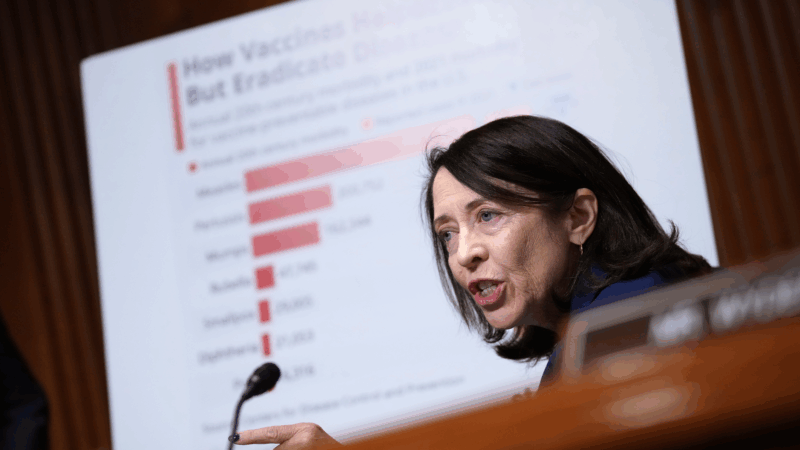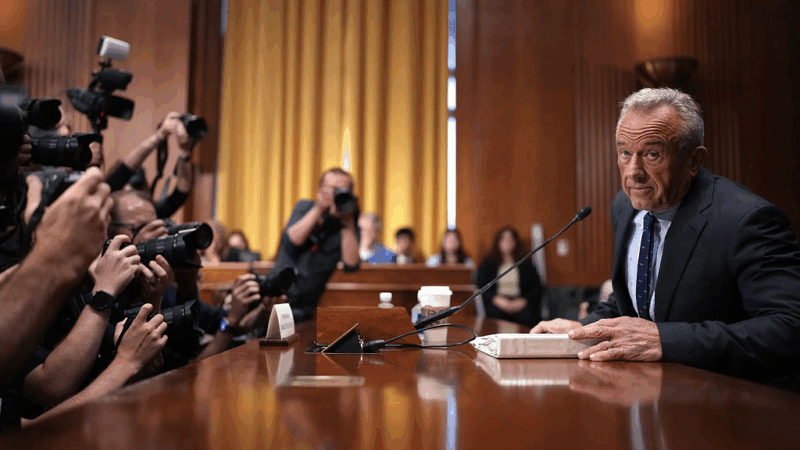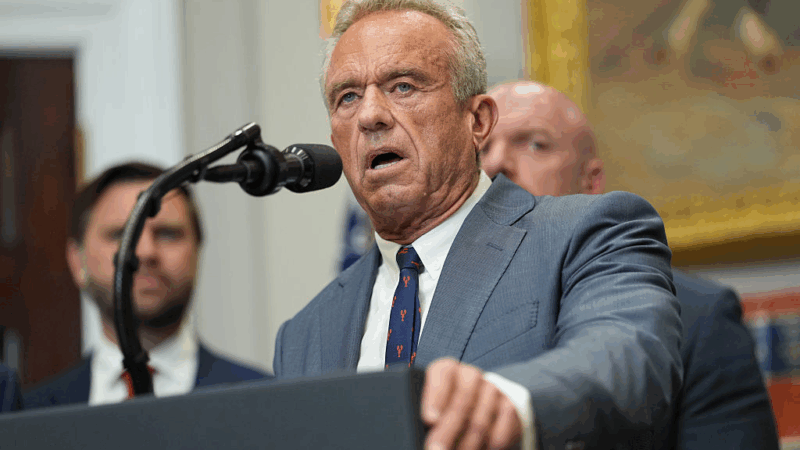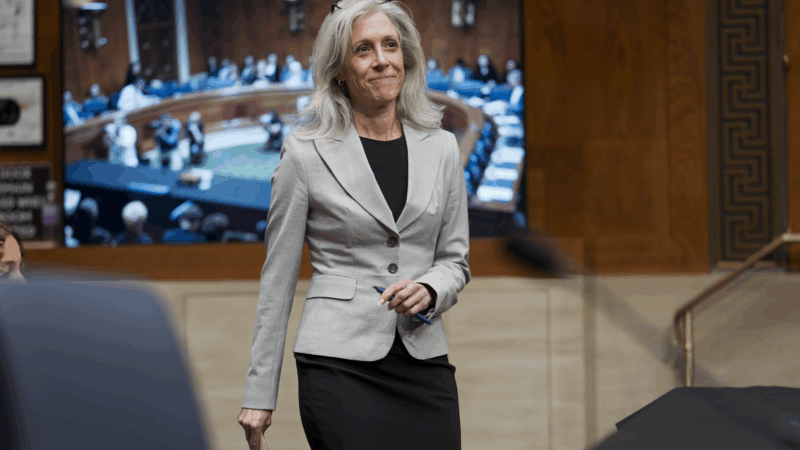Public Health
Surgeon general nominee Means questioned about vaccines, birth control and financial conflicts
During a confirmation hearing, senators asked Dr. Casey Means about her current positions and her past statements on a range of public health issues.
A drop in CDC health alerts leaves doctors ‘flying blind’
Doctors and public health officials are concerned about the drop in health alerts from the Centers for Disease Control and Prevention since President Trump returned for a second term.
Flu shot recommendation for kids dropped just as the illness rages
The Centers for Disease Control and Prevention dropped its advice that kids get an annual flu shot at a time when flu cases and hospitalizations are surging.
The CDC just sidelined these childhood vaccines. Here’s what they prevent
The childhood vaccines that the CDC is dropping from the recommended scheduled have successfully beat back illness and death in children from rotavirus, hepatitis and other pathogens.
More seniors are becoming homeless. Shelters are trying to adapt
Older adults are the fastest-growing homeless population across the U.S. Now some shelters are trying to make it easier to accommodate older people.
Health officials slash the number of vaccines recommended for all kids
The Centers for Disease Control and Prevention is reducing the number of vaccines recommended for all children. The action follows a presidential memorandum ordering a review of the U.S. schedule.
In the U.S., hunger is often hidden. But it can still leave scars on body and mind
In the U.S., hunger is often hidden away. It looks nothing like the stereotype of a famine happening overseas. But the physical impacts on health and the psychological scars can last a lifetime.
HHS changed the name of transgender health leader on her official portrait
Admiral Rachel Levine was the first transgender person to be confirmed by the Senate to serve in the federal government. Her official portrait at HHS headquarters has been altered.
CDC advisers vote to overturn decades-long policy on hepatitis B vaccine for infants
In a controversial move, the vaccine advisory group reversed a recommendations for universal immunizing of newborns intended to protect them from a virus that attacks the liver.
CDC advisers delay planned vote on hepatitis B vaccine for infants
After a contentious discussion, the vaccine advisory group pushed the vote to Friday to give members time to study the language of proposed changes longstanding policy on the shots.
Nonprofit erases millions in medical debt across Gulf South, says it’s ‘Band-Aid’ for real issue
Undue Medical Debt has paid off more than $299 million in medical debts in Alabama. Now, the nonprofit warns that the issue could soon get worse.
Alabama ranks near bottom in latest Medicare scorecard; here’s why
A new Commonwealth Fund report paints a stark picture of how Medicare is serving older adults and people with disabilities in the Gulf South.
Democratic governors form a public health alliance in a rebuke of Trump
They're framing it as a way to share data and messages about threats, emergency preparedness and public health policy at a time when the federal government isn't doing its job in public health.
59% of Americans disapprove of RFK Jr.’s moves as health secretary, a new poll says
A new poll shows trust in federal health policies is plummeting, and what -- or who -- people believe increasingly depends on their politics.
RFK Jr.’s new dietary guidelines could be controversial. Here’s what to watch for
The Health Secretary's affinity for saturated fat and his ire over ultra-processed foods could influence federal food guidelines, expected out this fall.
Drug checking services save lives in the Netherlands. The Gulf South doesn’t have any
Both the U.S. and the Netherlands wrestle with the politics of drug use, but their approaches diverge in key ways that reflect deeper ideological divides.
Gulf South pharmacies make their own rules amid confusing COVID guidance: ‘It’s clear as mud’
Unclear rules and inconsistent interpretations of federal and state COVID-19 vaccination rules leave families confused and vulnerable patients unprotected.
The Trump administration is expected to link autism to Tylenol use during pregnancy
President Trump and HHS secretary Robert F. Kennedy Jr. are expected to tie autism to acetaminophen use during pregnancy, and present a cancer drug as a possible treatment. There is little credible scientific evidence for either claim.
RFK Jr.’s vaccine panel backs away from asking states to require an Rx for a COVID shot
The group voted to require people who want a COVID shot to be briefed on harms and benefits, but in a close vote, the panel failed to pass a change that would have asked states to require people to get a prescription.
‘We are rookies’: Day 2 of CDC vaccine meeting opens with a reversal and a surprise
RFK Jr.'s reshaped ACIP vaccine panel re-did a vote from yesterday on the MMRV vaccine and scrapped plans for another vote on the hepatitis B birth dose.
CDC’s vaccine advisers meet this week. Here’s how they could affect policy
Health Secretary Robert F. Kennedy, Jr. chose everyone in the group. Their votes could affect vaccine access for certain childhood vaccines and and the COVID shots. Here's what's at stake.
Ousted CDC director testifies she was fired for resisting pressure from RFK Jr.
Susan Monarez says RFK Jr. told her to commit to decisions in advance, without reviewing evidence and to dismiss vaccine experts.
RFK Jr. wants to end mental health screenings in schools. Experts say it’s a bad idea
Health Secretary Robert F. Kennedy and Education Secretary Linda McMahon are against schools giving kids standardized questionnaires about their mental well-being. But experts say they are wrong.
5 new members added to CDC vaccine advisory panel ahead of key meeting
Health Secretary Robert F. Kennedy Jr. picks more new vaccine advisers to the Centers for Disease Control and Prevention, days before a two-day meeting to consider COVID and hepatitis B shots.
Wary of RFK Jr., Colorado started revamping its vaccine policies last spring
While Health Secretary Robert F. Kennedy, Jr., dismantles the federal institutions that set vaccine policy, states like Colorado are changing laws and regulations in an effort to preserve access to vaccines.
In 2024, COVID dropped from the list of top 10 causes of death in U.S.
For the first time since 2020, COVID is not one of the 10 leading causes of death in the U.S.
The MAHA plan for healthier kids includes 128 ideas, but few details
The Make America Healthy Again commission is proposing more than 100 moves to address the root causes of childhood chronic disease. Critics say other Trump administration moves contradict the goals.
Concerned about federal vaccine policies, states are crafting their own
As federal health agencies change their approach to vaccine policy leaving access for COVID shots uncertain, some states are taking things into their own hands.
Democrat who called RFK Jr. a ‘charlatan’ says U.S. is vulnerable to next pandemic
Sen. Maria Cantwell, a Democrat from Washington, says Health Secretary Robert F. Kennedy Jr. is "not following the science," like he said he would during his confirmation hearings earlier this year.
Senators from both parties grilled RFK Jr. on vaccines and more
In a blistering hearing, Senators from both parties challenged the health secretary to defend his actions, including on vaccines access and CDC leadership.
RFK Jr. to face questions about chaos at the CDC
Democratic lawmakers and more than a thousand current and former HHS staff say Kennedy's actions are endangering America's health. Kennedy says he came to clean house and he's delivering.
CDC director is out after less than a month; other agency leaders resign
"Susan Monarez is no longer director of the Centers for Disease Control and Prevention," the Department of Health and Human Services wrote in a social media post. Her lawyers said she had neither resigned nor been told she was fired.


